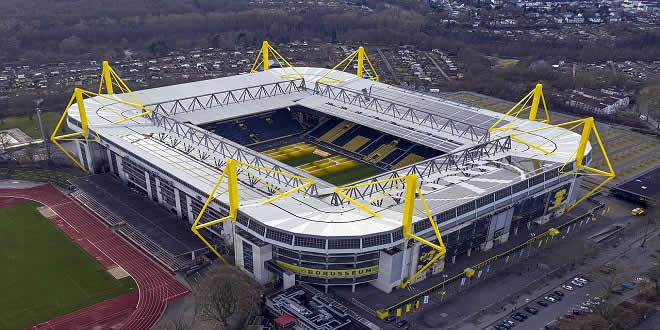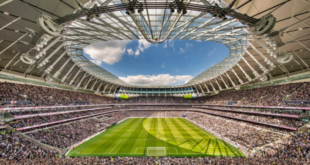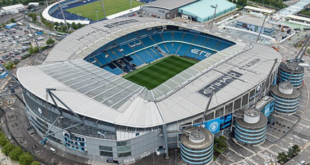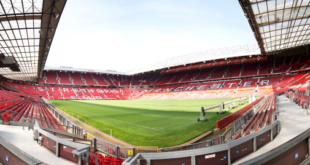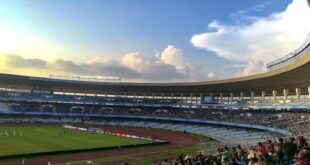| Stadium Name: | Signal Iduna Park (Westfalenstadion) |
| Constructed: | 2 April 1974 |
| Location: | Strobelallee 50 – 44139 Dortmund, North Rhine-Westphalia, Germany |
| Capacity: | 81,365 |
| Home Team: | Borussia Dortmund, Germany national football team (selected matches) |
| Owner: | Borussia Dortmund GmbH & Co. KGa |
| Record Attendance: | 83,000 |
Signal Iduna Park, Dortmund, Germany: History
Signal Iduna Park, located in the city of Dortmund, is one of the most famous football stadiums in the world. It is known for its modern facilities, fantastic atmosphere, and historical significance. The stadium was originally built in 1974 to host the 1974 FIFA World Cup, with a capacity of 54,000 spectators. It was designed by the architect Helmut Hentrich, who created a stadium that was both functional and beautiful. The stadium is home to the Borussia Dortmund Football Club, one of the most beloved teams in Germany. With a loyal following of fans who flock to the stadium every week to cheer on their team.
Recent Updates
The stadium’s current name, Signal Iduna Park, comes from the naming rights agreement signed between Borussia Dortmund and the Signal Iduna Group, a German insurance company. The agreement, which was signed in 2005, is worth €15 million per year and will expire in 2026.
In 2002, the stadium underwent a massive renovation that included the installation of a retractable roof and four new stands were built to fill the corners between the existing grandstands, raising the seating capacity for international games from 52,000 to 67,000.
The stadium is also known for its unique features, such as the famous “Yellow Wall,” a standing section that can hold up to 25,000 fans. The Yellow Wall is the largest standing terrace in Europe and is considered one of the most exciting places to watch a football match. The wall is painted yellow, the club’s primary colour, and is often referred to as the “Gelbe Wand” in German. The noise generated by the fans in the Yellow Wall is deafening, creating an incredible atmosphere that is unmatched anywhere in the world.
Another unique feature of Signal Iduna Park is its retractable roof. It can open or close in just 20 minutes. The roof protects fans and players from bad wether conditions and from the elements. The stadium also has a state-of-the-art lighting system that can change color to match the team’s colors or to celebrate special events.
Events @ Signal Iduna Park
Signal Iduna Park has played host to several major football events over the years, including the 1974 FIFA World Cup, the 1988 European Championships, and the 2006 FIFA World Cup. The stadium also hosted several other important matches.
Aside from football, the stadium is also used for concerts by some of the world’s biggest artists. The Rolling Stones, Bon Jovi, and Beyoncé all performed at Signal Iduna Park, entertaining audiences of up to 70,000 people.
The stadium is more than just a sports venue, it is a cultural landmark. It is a symbol of the city of Dortmund. Its iconic design, unique features, and passionate fans have made it one of the most recognizable and beloved stadiums in the world. It is a testament to the power of sports to bring people together. To create a sense of community and belonging, and to inspire passion and excitement.
In conclusion, Signal Iduna Park is more than just a football stadium. it is a cultural icon that has played a significant role in the history of German football. With its unique features, fantastic atmosphere, and rich history, it is a must-visit destination for any sports fan. Whether you’re a fan of Borussia Dortmund or simply a lover of football, Signal Iduna Park is an experience you won’t soon forget.
 Sweaty Goal Everything about Football
Sweaty Goal Everything about Football
